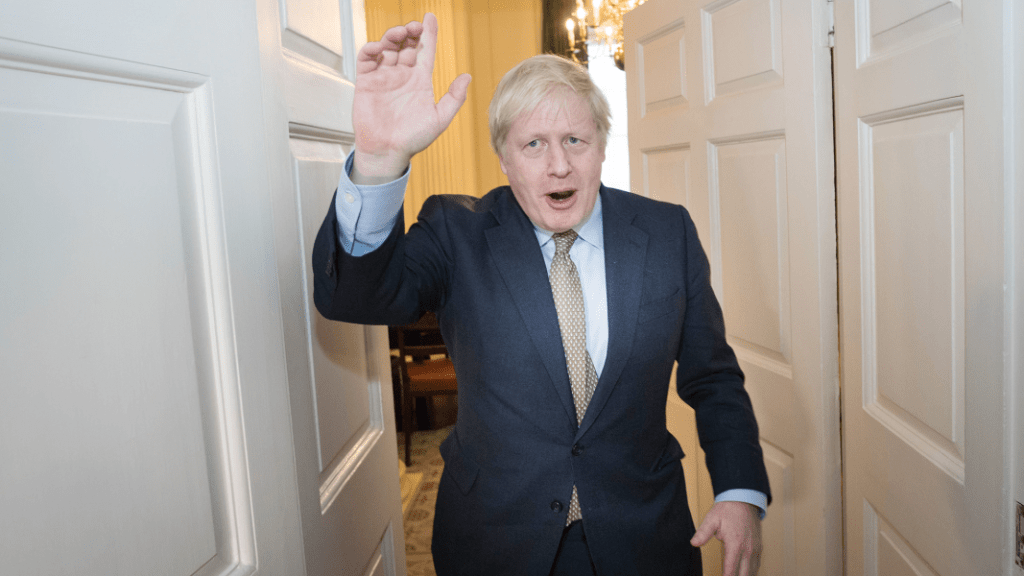BRUSSELS BEHIND THE SCENES
Weekly analysis and untold stories
With SAMUEL STOLTON
Other Brussels behind the scenes stories:
An Ideological War in Ol' Blighty
The UK's Quivering Hands
“I’m going to go home, lounge on the sofa in my underpants – put on BBC News and uncork a bottle of red,” one EU source told me on the sidelines of yesterday’s EU Council summit. “I’ll drink from the bottle,” the source added.
Officials in Brussels had been fearful of a hung Parliament in the UK following yesterday’s general election. In reality, that which greeted us this morning - a romping Conservative victory - provides EU leaders with at least one thing: clarity.
Speaking on arrival at the Council Summit this morning, Irish Prime Minister Leo Varadkar called the outcome of the UK polls “positive” and said that he wants to find a solution that guarantees no hard border between northern and southern Ireland. Romania’s leader Klaus Iohannis said that the decision of the UK people leads at least to a deal, while Luxembourg’s Xavier Bettel observed the result as indicative of the UK electorate’s desire for certainty.
Sent out every Friday afternoon, BRUSSELS BEHIND THE SCENES brings the untold stories about the characters driving the policies affecting our lives. Analysis not found anywhere else, The Brussels Times' Samuel Stolton helps you make sense of what is happening in Brussels.
If you want to receive Brussels behind the scenes straight to your inbox every Friday, subscribe to the newsletter here.
The result is, however, the merchandise of a divisive and invidious campaign, fraught by radical divergences in political strategies between Labour’s policy-led approach and support for nationalisation and welfare, pitted up against the Conservative’s lack of substance and detail, relying heavily on Boris Johnson’s faux-naïf brand of British gracelessness.
The outcome marks a seismic paradigm shift that has been in the offing for the past twenty years or so, but now reaches its apogee. UK leaders are able to contract popular support in merely forming a coherent and definitive sense of character and a distinct narrative, from which to tread the boards in this dizzying theatre of British politics. Politicians can overturn long-held party allegiances not through policy, but through personality.
For Johnson himself, there has long been the accusation that his public performances have been highly contrived and that behind the maladroit veneer there lies an adept and tactful political strategist. Speaking earlier this morning, following the Conservative’s landslide result, Johnson struck a wholly more demure and unassuming tone as to that which had been heretofore employed to anchor his own sense of character.
“You may only have lent us your vote and you may not think of yourself as a natural Tory,” Johnson said. “And as I think I said 11 years ago to the people of London when I was elected in what was thought of as a Labour city, your hand may have quivered over the ballot paper as before you put your cross in the Conservative box and you may intend to return to Labour next time round. And if that is the case, I am humbled that you have put your trust in me and that you have put your trust in us.”
BRUSSELS BEHIND THE SCENES POWERED THIS WEEK BY
The sign and semblance of the sombre British electorate tentatively approaching the ballot boxes in wind-beaten village halls up and down the country to submit their democratic mandates in a spirit of scepticism, is a tragic and petrifying indictment on the current state of democracy in Western Europe. Such voters, these Quivering Hands, obliging themselves to be complicit in the agenda of an ideology of which they don’t share a cultural or historical relation is the mark of a political domain utterly divorced from normal people.
I don’t pretend that the UK’s Quivering Hands had an easy time yesterday. Traditional Labour voters in England’s ‘industrial’ north were most probably afflicted by an extreme fatigue, ad nauseum, to the extent that their vote yielded to the domineering spectre that has haunted the UK ever since Margaret Thatcher’s 1988 Bruges speech: Brexit.
Labour heartlands including Darlington, Sedgefield and Workington were coerced by this phantom spirit of nationalism to disrobe themselves of the deep-rooted social and cultural affiliations to party politics. Yet, the pursuance along an ambiguous and economically questionable path may very well lead to global geopolitical alienation, and, could render Her Majesty’s United Kingdom nothing more than a mere abortion of land on the outskirts of continental Europe.
We now know the countenance and character of that inexplicable drive that led to the transmogrification of England’s Industrial Socialists into a new class of voters prepared to support an elitist Conservative regime. Brexit. In this vein, the UK did in fact obtain their second referendum, in the end. The force of the UK’s desire to leave the EU was so potent and unrelenting that it eventually imposed the capitulation of party affiliations and formed a common and uniting theme, while at the same time alienating vast swathes of oppositional, progressive thinkers – split between the academic Leftism of Corbyn’s Labour and the social internationalism of the Lib Dems.
Johnson himself will now show the face behind the mask. His majority in the Commons obliges him to. While his relationship with the EU has now been clarified, he however inherits an altogether more indomitable beast: the maddening crowd of separatists springing up from the UK’s North. With Scottish National Party’s near dominance in their country of origin, the question of Scottish independence is now back on the national agenda. In many ways, the UK is now more divided than ever. Expect hands to very well quiver the more, into the next five years.
Sent out every Friday afternoon, BRUSSELS BEHIND THE SCENES brings the untold stories about the characters driving the policies affecting our lives. Analysis not found anywhere else, The Brussels Times' Samuel Stolton helps you make sense of what is happening in Brussels.
If you want to receive Brussels behind the scenes straight to your inbox every Friday, subscribe to the newsletter here.


